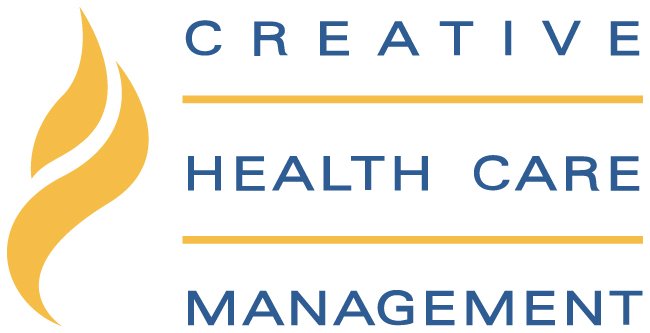Nursing engagement directly impacts job satisfaction and patient care quality. Engaged nurses are more motivated, stay longer, and provide better care. This article outlines what nursing engagement is, why it is essential, the challenges involved, and practical strategies to improve it. Expect insights on creating a supportive and engaging work environment for nurses.
Key Takeaways
- Nurse engagement is crucial for improving patient care, reducing turnover rates, and enhancing job satisfaction among nurses.
- Key challenges to nurse engagement include fatigue, burnout, inadequate staffing, and lack of recognition, which need to be addressed to maintain high levels of engagement.
- Strategies such as supportive leadership, professional development opportunities, shared/professional governance, and implementing Relationship-Based Care® can significantly boost nurse engagement and improve overall healthcare outcomes.
Understanding Nursing Engagement

The concept of nurse engagement refers to the level of motivation and inspiration experienced by nurses in their daily work. It measures how their work captivates and actively involves them. It is a multifaceted concept that encompasses commitment, satisfaction, and connection with their job, organization, and the nursing profession. Engaged nurses are more likely to provide high-quality patient care, exhibit lower turnover rates, and experience higher job satisfaction. Conversely, disengaged nurses can negatively impact patient outcomes and increase healthcare costs due to higher turnover rates.
Healthcare organizations are increasingly focusing on nurse engagement strategies to address staff shortages and improve retention. The benefits of higher nurse engagement extend beyond individual nurses to the entire organization, leading to improved patient safety, better teamwork, and enhanced organizational outcomes. A supportive and engaging work environment begins with a clear grasp of the factors that influence nurse engagement.
What is Nurse Engagement?
Nurse engagement refers to the commitment and satisfaction nurses have with their jobs, their organizations, and the nursing profession as a whole. Nurse engagement can be categorized into four levels:
- Most engaged
- Moderately engaged
- Somewhat engaged
- Least engaged
Greater nurse engagement correlates directly with positive workforce outcomes, including reduced burnout and lower staff turnover. Additionally, it contributes to higher job satisfaction among nurses. In hospitals with highly engaged nurses, patients reported more favorable ratings, lower prevalence of pressure ulcers, and overall improved patient satisfaction. This underscores the importance of creating an engaging work environment for nurses.
Importance of Nurse Engagement
Patient safety, quality of care, and patient experience outcomes greatly depend on nurse engagement. Engaged nurses are more likely to stay in their jobs, reducing turnover rates and associated costs. Improved nurse engagement has been linked to better patient safety, fewer medical errors, and enhanced patient satisfaction. Collegiality and feeling valued by colleagues also play a significant role in maintaining high levels of nurse engagement.
Achieving designations like Magnet® and Pathway to Excellence® is associated with higher nurse engagement and improved patient outcomes. These designations reflect a commitment to nursing excellence and a positive work environment that supports nurse engagement and retention. By prioritizing nurse engagement, healthcare organizations can enhance both patient and nurse outcomes.
Factors Affecting Nurse Engagement
Complex demands, limited resources, and lack of support are among the factors that can affect nurse engagement. The pressures of shifting priorities and high patient loads can lead to disengagement and burnout among nurses. Limited resources, such as insufficient professional development opportunities, employee recognition, and workplace supplies, can also negatively impact nurse engagement.
Support in the form of inclusivity and ensuring physical and psychological safety is crucial for maintaining high levels of nurse engagement. Nurses can take control of their careers and stay engaged through continuous learning opportunities. These opportunities provide the chance to enhance their skills and knowledge. Surveys that include questions on job satisfaction, perceived support from leadership, and professional development opportunities can provide valuable insights into factors affecting nurse engagement.
Challenges to Nursing Engagement

Several challenges can diminish the evident benefits of nurse engagement. Fatigue and burnout, inadequate staffing, and lack of recognition are significant barriers to maintaining high levels of nurse engagement. Addressing these challenges is crucial for fostering a supportive and engaging work environment for nurses.
Nearly two-thirds of registered nurses experience burnout, with the rate being higher among younger nurses, especially those who have recently graduated from nursing school. Inadequate staffing negatively influences nurse retention and can compromise patient safety. Lack of recognition from supervisors and colleagues can lead to feelings of underappreciation and disengagement.
Healthcare organizations can improve delivery outcomes by enhancing nurse engagement and incorporating effective nursing practice to tackle these challenges.
Fatigue and Burnout
Reduced nurse engagement is often attributed to significant factors like fatigue and burnout. Burnout is characterized by disengagement and a lack of motivation, which is distinct from stress that typically involves excessive engagement. High patient loads, long shifts without adequate breaks, and a toxic workplace culture are significant contributors to nurse burnout.
Compassion fatigue further exacerbates burnout. Nurses experiencing compassion fatigue are prone to increased emotional labor, leading to feelings of inadequacy and emotional exhaustion. Addressing these issues is crucial for improving nurse engagement and job satisfaction.
Inadequate Staffing
The challenge of inadequate staffing significantly hinders nurse engagement. Low staffing levels and high patient loads can lead to feelings of burnout and disengagement among nurses. Inadequate nurse staffing is linked to increased medical errors and threats to patient safety.
Organizational issues, such as inadequate staffing, can exacerbate feelings of burnout and compromise nurse engagement. A supportive nurse work environment, characterized by safe staffing levels and good communication, is critical for maintaining high levels of nurse engagement and ensuring patient safety.
Lack of Recognition
Maintaining high levels of nurse engagement necessitates recognition. Lack of recognition can lead to feelings of underappreciation and disengagement among nurses. Recognition from hospitals, supervisors, and colleagues can mitigate the effects of compassion fatigue and improve nurse engagement.
Programs that reward and appreciate nurses’ efforts can significantly enhance their engagement and morale. Recognition is linked to:
- Higher levels of engagement
- Mental health
- Resilience
- Productivity
- Lower levels of fatigue and emotional exhaustion
By prioritizing recognition, healthcare facilities can have a more engaged and satisfied nursing workforce.
Strategies to Enhance Nursing Engagement

Patient and nurse outcomes can be improved by implementing strategies to enhance nursing engagement. Supportive leadership, professional development opportunities, and shared governance are key strategies that can offer a positive work environment and enhance nurse engagement.
Flexible scheduling practices that give nurses greater autonomy and input can also contribute to nurse engagement. Offering competitive compensation and benefits packages is essential for retaining engaged nurses. By implementing these strategies, healthcare organizations can create an environment that supports and enhances nurse engagement.
Supportive Leadership
Enhancing nurse engagement depends heavily on supportive leadership. Leaders who are approachable and maintain open lines of communication develop a more engaged nursing workforce. Encouraging leadership styles that emphasize empathy and support can lead to compassionate connected care, higher satisfaction, and engagement.
Effective communication is critical for building morale, satisfaction, and engagement among nurses. Mentorship programs can help nurses feel supported in their career growth, further boosting engagement and reducing turnover rates. By implementing a culture of constant communication and support, healthcare systems can increase nurse engagement.
Professional Development Opportunities
The nursing professions sustainability requires providing ongoing training and development opportunities. Education improves competencies, creates versatility, develops leaders, and elevates organizations. Continuing education opportunities help nurses stay current with the latest medical advancements and techniques, keeping them motivated and engaged.
Offering specialized training programs can enhance nurses’ skills, demonstrates the administration’s value of nurses’ professional skills, and improves workforce engagement.
Shared Governance
Nurses’ sense of ownership and engagement is enhanced when they are empowered to participate in decision-making processes through shared governance models. Involving nurses in policy and procedure development can lead to less nurse burnout and greater satisfaction while improving communication between nursing staff and administrative support.
Organizations that believe in employee engagement through shared decision-making outperform their counterparts in terms of:
- Job satisfaction
- Retention
- Profitability
- Performance
By implementing shared governance, healthcare facilities can create a positive environment that supports work engagement.
Implementing Creative Health Care Management’s Solutions for Better Engagement
Creative Health Care Management (CHCM) offers a range of solutions to build fully engaged nurses, including expert shared/professional governance consulting services, Relationship-Based Care™, and support for achieving Magnet® and Pathway to Excellence® designations. These solutions are designed to cultivate a culture of empathy, compassion, and trust among healthcare staff, patients, and families.
Empathetic leaders who understand employees’ perspectives can improve job performance for registered nurses and all of the nursing staff while modeling employee engagement in the workforce. By utilizing Creative Health Care Management’s solutions, a healthcare organization can enhance nurse engagement and improve overall healthcare delivery outcomes.
Expert Consulting Services
Creative Health Care Management’s expert consultants offer tailored support and guidance to hospital management seeking to create more engaged nurses. Consultants are paired with organizations based on specific needs, ensuring that the support provided is relevant and effective.
Consultation services from CHCM include educational programs as well as resources to enhance nursing competency. CHCM has partnered with hospitals of all sizes on various initiatives, from one-day presentations to multi-year implementations of Relationship-Based Care™ and Magnet® or Pathway® journeys.
Relationship-Based Care™
Relationship-Based Care™ (RBC) focuses on implementing and maintaining positive relationships among healthcare staff, patients, and families, which is essential in providing direct patient care. This approach creates a compassionate and connected care environment, which is fundamental to delivering effective, patient-centered care.
RBC initiatives promote a culture of empathy and trust, which enhances nurse engagement and improves the quality care for patients. By implementing RBC, healthcare facilities and organizations can strengthen relationships and create supportive nurse staffing.
Magnet® and Pathway to Excellence® Support
CHCM assists organizations in achieving Magnet® and Pathway to Excellence® designations, which are also linked to improving nurse engagement and improved patient safety outcomes. These designations reflect a commitment to nursing excellence and create a positive environment that supports nurse engagement and retention.
CHCM offers comprehensive services to help hospitals prepare for Magnet® and Pathway to Excellence® designation, including:
- Structure and process development
- Document review
- Site visit preparation
- Readiness assessments
- And MUCH more
By achieving these designations, healthcare facilities and organizations can enhance nurse engagement and improve overall healthcare delivery outcomes under the guidance of a chief nursing officer.
Measuring the Impact of Improved Nursing Engagement

Assessing the effectiveness of engagement initiatives requires measuring the impact of improved nursing engagement. Effective measurement often involves using employee surveys, patient experience and outcomes metrics, and continuous improvement loops. These methods are contributing factors and provide valuable insights into how engagement strategies are influencing nurse satisfaction, patient care, and overall organizational performance.
The National Database of Nursing Quality Indicators® (NDNQI®) is a key tool for measuring:
- Nurse satisfaction
- Nurse retention
- Patient satisfaction
- Patient outcomes
By regularly assessing these metrics, healthcare facilities and organizations can gauge the impact of their engagement initiatives and make data-driven decisions to enhance nurse engagement and patient care.
Employee Surveys and Feedback
Regular assessments of nurse satisfaction and engagement levels necessitate employee surveys. These surveys capture insights on factors affecting nurse job satisfaction and help managers make data-driven decisions to improve workplace conditions. Gallup and Press Ganey surveys, for example, measure staff members’ perceptions of their work environment and their sense of appreciation from supervisors.
Pulse surveys, which are shorter and more frequent check-ins conducted throughout the year, can monitor nurse concerns and the effectiveness of action plans. Regular feedback mechanisms, such as open-ended survey questions and transparent feedback, are essential for staff engagement and continuous improvement.
Patient Outcomes Metrics
Another key instrument for measuring the impact of nursing engagement are patient outcome metrics. These metrics can include tracking patient safety, quality of care, and patient satisfaction scores.
Indicators from the NDNQI, such as measures of patient satisfaction, can be used to assess the impact of nurse engagement initiatives. By monitoring these metrics, healthcare organizations can ensure that their engagement strategies are leading to tangible improvements in patient care and critical safety measurements.
Continuous Improvement
Sustaining improvements in nurse engagement necessitates continuous improvement. Ongoing evaluation and timely sharing of healthcare research, data and outcomes are crucial for maintaining high levels of engagement. Using the right technology and tools is also important for effectively gathering and analyzing nurse feedback.
Promoting a healthy culture through effective and transparent communication supports continuous improvement in engagement strategies. By regularly evaluating engagement strategies and making necessary adjustments based on feedback and outcomes, healthcare facilities and organizations can sustain improvements in nurse quality and patient engagement.
Summary
In conclusion, nurse engagement is critical for improving patient care, nurse satisfaction, and overall healthcare delivery outcomes. Addressing challenges such as fatigue, burnout, inadequate staffing, and lack of recognition is essential for a supportive and engaging work environment for nurses. Implementing strategies such as supportive leadership, professional development opportunities, and shared/professional governance can enhance nurse engagement and create a positive work environment.
By utilizing CHCM’s solutions, healthcare organizations can improve nurse engagement and achieve sustainable improvements in employee engagement, turnover, and nurse burnout. Measuring the impact of engagement initiatives through employee surveys, patient outcomes metrics, and continuous improvement efforts is crucial for understanding their effectiveness and making data-driven decisions to enhance nurse engagement. Together, these efforts can lead to better patient care, higher nurse satisfaction, and improved organizational performance.
Frequently Asked Questions
What is nurse engagement?
Nurse engagement is the level of commitment and satisfaction that nurses have towards their jobs, organizations, and the nursing profession overall.
Why is nurse engagement important?
It’s important to be happy at work, and nurse engagement is extra important because it directly impacts patient safety, care quality, and patient experience, while also reducing turnover rates and associated costs.
What factors affect nurse engagement?
Nurse engagement can be influenced by complex demands, limited resources, and lack of support, but maintaining high levels of engagement is possible with continuous learning opportunities and a supportive work environment.
How can CHCM help improve nurse engagement?
CHCM can help improve nurse engagement through expert consulting services, Shared/Professional Governance development, Relationship-Based Care™, and support for achieving Magnet® and Pathway to Excellence® designations, ultimately leading to better healthcare delivery outcomes.
How can healthcare facilities and organizations measure the impact of improved nursing engagement?
Healthcare organizations can measure the impact of improved nursing engagement using employee surveys, patient outcomes metrics, and continuous improvement efforts, which provide insights into nurse satisfaction, patient care, and organizational performance.
Sources:
https://nursejournal.org/articles/nurse-burnout-less-engaged-study
https://www.pressganey.com/platform/ndnqi
MAGNET®, Magnet Recognition Program®, ANCC Magnet Recognition®, Journey to Magnet Excellence®, Pathway to Excellence® Program, Pathway to Excellence in Long Term Care®, Demographic Data Collection Tool®, DDCT®, Practice Transition Accreditation Program® (PTAP) are registered trademarks of the American Nurses Credentialing Center (ANCC). The products and services of Creative Health Care Management are neither sponsored nor endorsed by ANCC.
All rights reserved. The content presented in here is the expressed opinion of the author and not that of the American Nurses Credentialing Center (ANCC).


